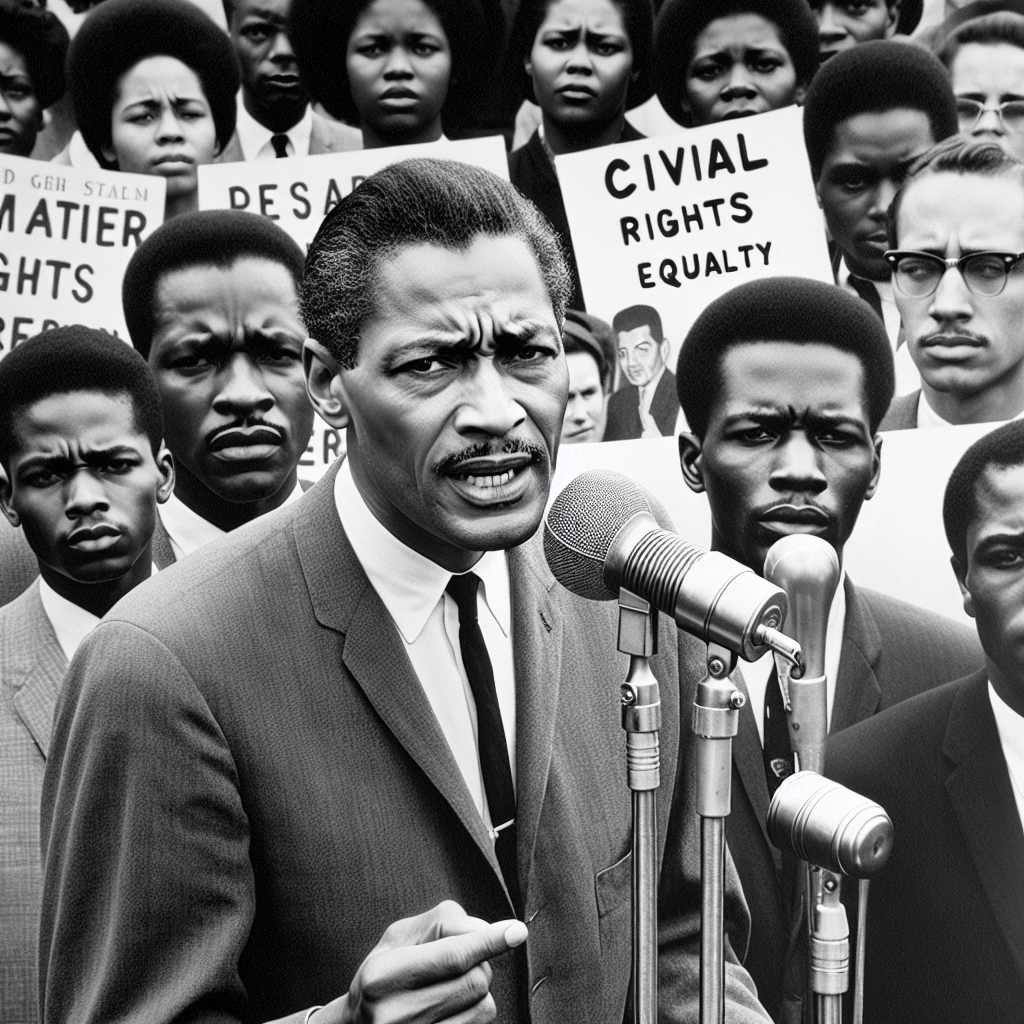The Enduring Legacy of Bayard Rustin: Civil Rights Strategist and Visionary
Bayard Rustin was an instrumental figure in shaping the civil rights movement in the United States. Despite facing discrimination for being an openly gay African American man, Rustin’s strategic mind and steadfast commitment to nonviolent protest significantly influenced many of the period’s watershed moments. This article aims to shed light on Rustin’s life, his contributions to the civil rights movement, and his influence on social justice efforts that continue today.
Early Life and Formative Influences
Bayard Rustin was born on March 17, 1912, in West Chester, Pennsylvania. Raised by his grandparents, he believed for most of his youth that his birth mother was his sister. His Quaker-influenced upbringing instilled in him a strong sense of equality and nonviolence, which would become the bedrock of his future activism.
Intellectual Development and Commitment to Nonviolence
Rustin’s early intellectual development led him to attend Wilberforce University and later Cheyney State Teachers College. His college years were punctuated by a deeper exploration of social justice issues, eventually leading to his affiliation with the Young Communist League for a time due to their anti-racist efforts.
After breaking with communist ideologies, largely due to their shifting stance on civil rights issues, Rustin embraced pacifism, influenced by the teachings of Mahatma Gandhi and the American Quaker community. His adherence to nonviolent principles guided much of his subsequent activism.
Role in the Civil Rights Movement
Rustin emerged as a critical but often behind-the-scenes player in civil rights efforts. His organizational skills were unparalleled, contributing notably to the Journey of Reconciliation in 1947, which inspired the more famous Freedom Rides over a decade later. As a staunch advocate for African American equality, Rustin experienced arrest for his acts of nonviolent protest.
His seminal role in advising Dr. Martin Luther King Jr. cemented his importance within the movement. Rustin taught King about Gandhi’s principles of nonviolence and helped him develop the strategy for the Montgomery Bus Boycott.
The 1963 March on Washington
Perhaps Bayard Rustin’s most recognizable contribution was as the chief organizer of the 1963 March on Washington for Jobs and Freedom, where Dr. King delivered his iconic “I Have a Dream” speech. Despite concerns about Rustin’s sexuality and former communist affiliations potentially undermining the march’s credibility, his organizing expertise was indispensable.
The successful peaceful demonstration remains one of the largest human rights protests in U.S. history and was instrumental in helping to pass the Civil Rights Act of 1964.
Continued Activism and Later Years
Bayard Rustin continued his advocacy work beyond the 1960s, focusing on economic justice, labor rights, and global human rights issues. His position also evolved on LGBTQ+ rights; initially reticent to discuss his sexuality in fear of damaging the movements he supported; he gradually became more outspoken about gay rights.
In 1987, Rustin passed away at sixty-five, leaving behind an indelible mark on civil rights history.
His Forgotten Contributions and Recent Recognition
Partly because of his sexuality and partly due to his former communist ties, Bayard Rustin’s contributions were marginalized compared to other leaders for many years following his death. However, recent recognition has come posthumously. In 2013, President Barack Obama awarded him the Presidential Medal of Freedom honoring his tireless work in pursuing civil rights for all Americans.
Notes
- Bayard Rustin was born on March 17, 1912, and passed away on August 24, 1987.
- He was a chief organizer of the 1963 March on Washington, one of the largest protests for civil rights in U.S. history.
- In addition to civil rights, Rustin also advocated for economic justice and gay rights later in life.
- Despite his major contributions to civil rights activism, he remained lesser-known than some contemporaries due – largely owing to discrimination against his sexual orientation and past communist ties.
- In 2013, President Barack Obama posthumously awarded Bayard Rustin the Presidential Medal of Freedom.

